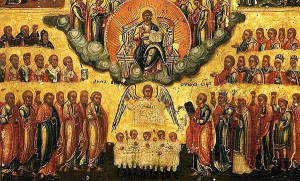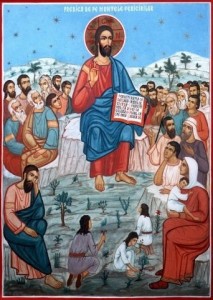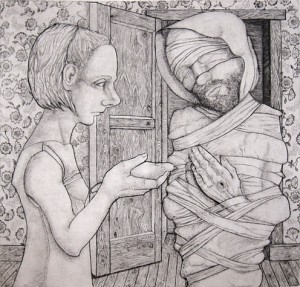Thoughts on Today’s Lessons for Nov. 2, 2014
First Reading: Revelation 7:9-17What a stirring scene for All Saints Day! The apocalyptic vision of John of Patmos, the author of Revelation, reveals a countless multitude of people from every race and nation – indeed, all the saints. All the world’s people are gathered to praise the Lamb, Revelation’s allegorical image for Jesus as both sheep and shepherd, both victim and victor, and the loving protector who guides us as a single multitude in all Earth’s glorious diversity.
Psalm: Psalm 34:1-10, 22
Most of the Psalms address God in prayer, but this one is different: The Psalmist here sings directly to the people, offering us wise counsel: As God’s saints and as God’s servants, we praise and worship God. We are small and humble. God is great and powerful. Yet when we are in trouble, when we are afraid, when we are hungry, we place our faith and trust in God and need not fear. Taste and see that God is good; happy are we who trust in God!
Second Reading: 1 John 3:1-3
Biblical scholars believe that the three short letters of John were written neither by John the apostle, John the evangelist, nor John the author of Revelation. After all, John was – and is – a very common name! The first letter of John celebrates the abundant love of God that showers on us and makes us all God’s children. All of God’s children, all of God’s saints, are brothers and sisters through God’s creative love.
Gospel: Matthew 5:1-12
Ah, the Beatitudes! The familiar opening verses of Jesus’s Sermon on the Mount, this list of blessings gives us a hint of how Jesus wants us all to live. But wait a minute! When we pay attention, as we should, don’t the Beatitudes turn our usual, comfortable vision of the world upside down? Blessings go not to the rich and powerful but to the poor, the meek, the hungry; those who seek peace in a world of violence; those who are oppressed and persecuted because they fight for justice? There is a message here for all God’s saints and sinners.



 First Reading:
First Reading: